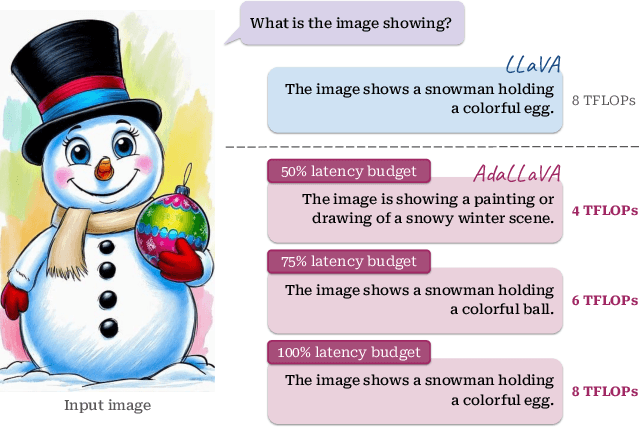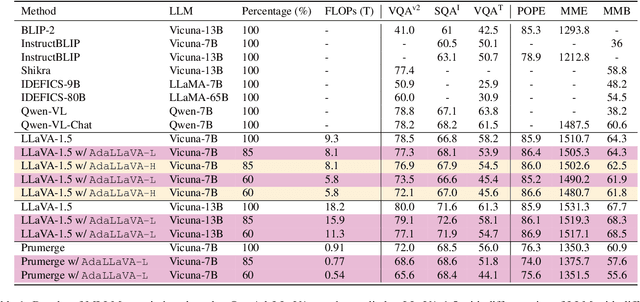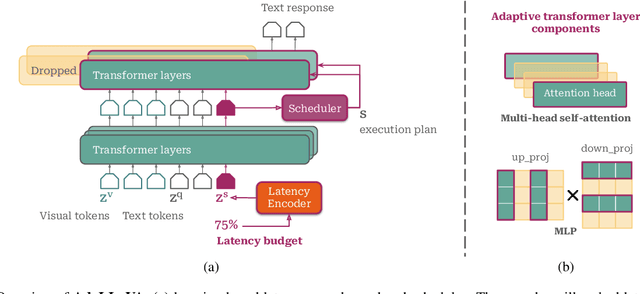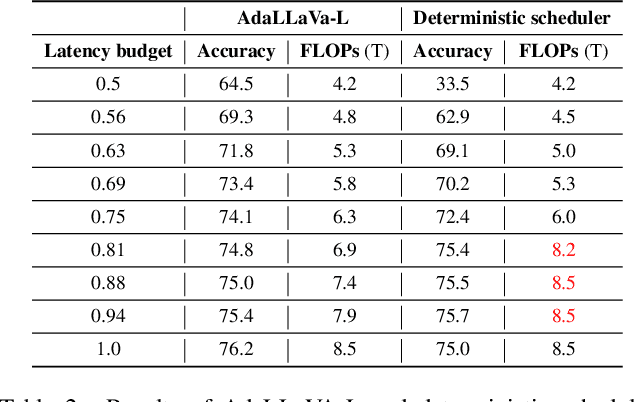Khoi Duc Nguyen
PAVE: Patching and Adapting Video Large Language Models
Mar 25, 2025Abstract:Pre-trained video large language models (Video LLMs) exhibit remarkable reasoning capabilities, yet adapting these models to new tasks involving additional modalities or data types (e.g., audio or 3D information) remains challenging. In this paper, we present PAVE, a flexible framework for adapting pre-trained Video LLMs to downstream tasks with side-channel signals, such as audio, 3D cues, or multi-view videos. PAVE introduces lightweight adapters, referred to as "patches," which add a small number of parameters and operations to a base model without modifying its architecture or pre-trained weights. In doing so, PAVE can effectively adapt the pre-trained base model to support diverse downstream tasks, including audio-visual question answering, 3D reasoning, multi-view video recognition, and high frame rate video understanding. Across these tasks, PAVE significantly enhances the performance of the base model, surpassing state-of-the-art task-specific models while incurring a minor cost of ~0.1% additional FLOPs and parameters. Further, PAVE supports multi-task learning and generalizes well across different Video LLMs. Our code is available at https://github.com/dragonlzm/PAVE.
Learning to Inference Adaptively for Multimodal Large Language Models
Mar 13, 2025



Abstract:Multimodal Large Language Models (MLLMs) have shown impressive capabilities in reasoning, yet come with substantial computational cost, limiting their deployment in resource-constrained settings. Despite recent efforts on improving the efficiency of MLLMs, prior solutions fall short in responding to varying runtime conditions, in particular changing resource availability (e.g., contention due to the execution of other programs on the device). To bridge this gap, we introduce AdaLLaVA, an adaptive inference framework that learns to dynamically reconfigure operations in an MLLM during inference, accounting for the input data and a latency budget. We conduct extensive experiments across benchmarks involving question-answering, reasoning, and hallucination. Our results show that AdaLLaVA effectively adheres to input latency budget, achieving varying accuracy and latency tradeoffs at runtime. Further, we demonstrate that AdaLLaVA adapts to both input latency and content, can be integrated with token selection for enhanced efficiency, and generalizes across MLLMs.Our project webpage with code release is at https://zhuoyan-xu.github.io/ada-llava/.
 Add to Chrome
Add to Chrome Add to Firefox
Add to Firefox Add to Edge
Add to Edge